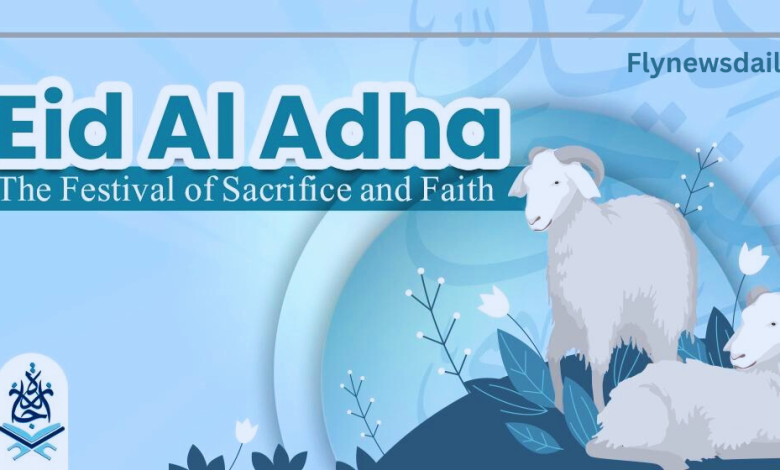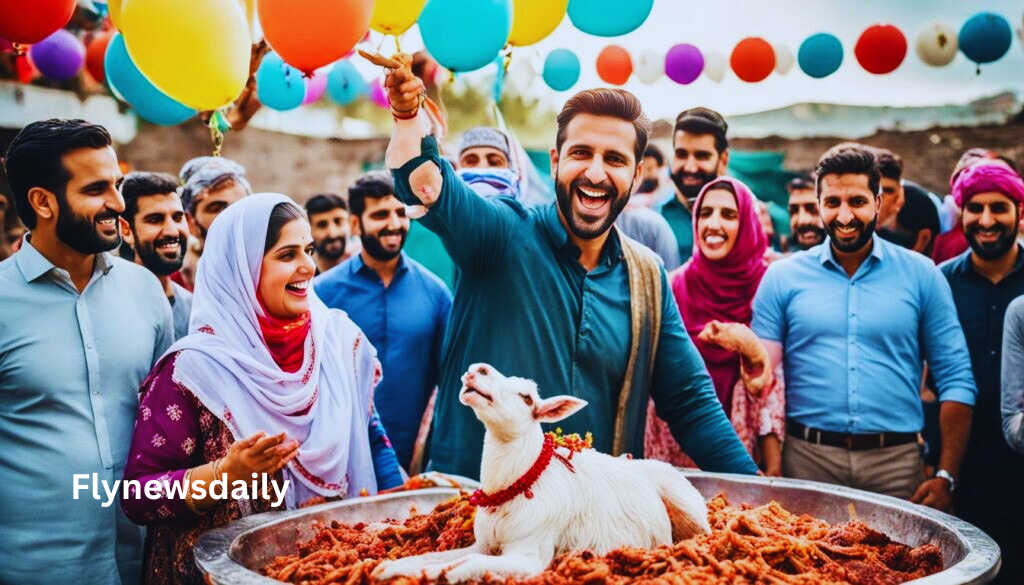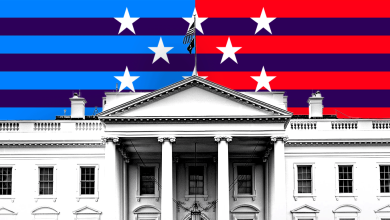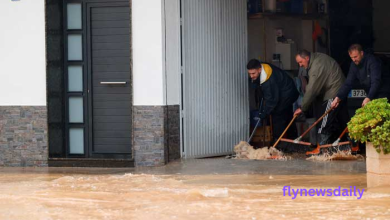
Eid al-Adha, also known as the Festival of Sacrifice, is one of the most significant Islamic holidays observed by Muslims around the world. This sacred festival commemorates the willingness of Prophet Ibrahim (Abraham) to sacrifice his son as an act of obedience to Allah’s command. Eid al-Adha 2024 is expected to be celebrated on June 28th, depending on the sighting of the moon. In this comprehensive article, we will delve into the history, significance, and various aspects of this important holiday.
The Historical Significance of Eid al-Adha
The Islamic tradition of Eid al-Adha is firmly ingrained in the story that stretches back to ancient times. Islamic tradition states that in a dream, Prophet Abraham received instructions from Allah to sacrifice his cherished son, Ismail. Ibrahim got ready to make the sacrifice, displaying his unshakeable faith and loyalty. But Ibrahim’s dedication pleased Allah, who stepped in and sent a ram to sacrifice in Ismail’s place. Muslims commemorate this gesture of total surrender to God’s will on Eid al-Adha.
Religious Observances and Traditions
The Hajj Pilgrimage
One of the Five Pillars of Islam, the yearly Hajj journey to Mecca, is completed around the time of Eid al-Adha. Performing a series of rites such as the Tawaf (circling the Kaaba), the Sa’i (walking between the hills of Safa and Marwah), and the symbolic stoning of the devil in Mina, millions of Muslims from all over the world assemble at Mecca. For those Muslims who are financially and physically capable of making the trip, the Hajj is a once-in-a-lifetime duty.
The Sacrificial Ritual (Qurbani)
The act of Qurbani, or the sacrifice of an animal—typically a sheep, goat, cow, or camel—is essential to the celebration of Eid al-Adha. This rite, which is performed by Muslims all across the world, represents Ibrahim’s willingness to sacrifice his son. Three portions of the flesh are taken from the sacrificed animal: one third is saved for the family, one third is shared with friends and family, and one third is donated to the underprivileged and needy. This practice focuses on the virtues of thankfulness, community, and compassion.

Special Prayers and Festive Gatherings
Salat al-Eid, a unique prayer said in assembly at mosques or open spaces, marks the start of Eid al-Adha. A sermon (khutbah) that emphasizes the significance of the event and the value of Muslim unity and compassion is delivered after the prayer. Following the prayer, friends and family get together to celebrate with celebratory feasts, gifts, and “Eid Mubarak,” or “Blessed Eid,” greetings.
Cultural Variations in Celebrating Eid al-Adha
Middle Eastern Traditions
Eid al-Adha is observed with great fervor and a multitude of cultural customs throughout the Middle East. The celebration is characterized by sumptuous feasts, traditional music, and lively markets in nations like Saudi Arabia, the United Arab Emirates, and Egypt. Families join together to cook delectable meals like biryani and lamb kebabs, as well as desserts like kunafa and baklava. People celebrate by dressing to the nines, decorating the streets and homes with vibrant decorations.
South Asian Celebrations
Eid al-Adha is a time for group prayers, large feasts, and family get-togethers in South Asia, which includes nations like Bangladesh, India, and Pakistan. You make special meals like biryani, mutton curry, and beef kebabs, and you share traditional desserts like gulab jamun and sheer khurma with your loved ones. Before the Qurbani, the sacrificial animals are frequently dressed with vibrant decorations and henna in various South Asian communities.
African Festivities
African nations like Nigeria, Somalia, and Morocco celebrate Eid al-Adha with distinctive customs and delectable cuisine. For example, the celebration is called “Sallah” in Nigeria and consists of sizable gathering prayers, music, and dancing. Families and friends enjoy traditional foods like jollof rice and suya (spicy grilled pork). The celebration is observed in Somalia with special prayers, eating, and meat sharing with the underprivileged.
The Spirit of Eid al-Adha: Lessons and Reflections
In addition to being a time for joy, Eid al-Adha is also a time for introspection and spiritual development. Muslims are encouraged to live by the ideals of selflessness, kindness, and giving during this celebration. It acts as a reminder of the value of providing aid to people in need and encouraging a sense of solidarity and community. Muslim participants in the Qurbani reaffirm their dedication to social justice and humanitarianism by sharing the meat with others.
Eid al-Adha 2024: Modern Celebrations and Adaptations
Virtual Gatherings and Online Donations
Many Muslims have changed the way they celebrate Eid al-Adha in recent years, particularly in the wake of the COVID-19 outbreak. Families and friends may now connect virtually and celebrate the event together even when they live far apart thanks to social media and video calls. Furthermore, Qurbani donation platforms on the internet have made it simpler for Muslims to fulfill their religious duties by giving to nonprofits that provide meat to the underprivileged.
Eco-Friendly Practices
An increasing number of Muslims are embracing eco-friendly customs during Eid al-Adha. This entails selecting sustainable practices for the Qurbani, like distributing meat in eco-friendly packaging and picking animals that are raised morally. These customs stress the value of protecting natural resources and are consistent with the Islamic concept of guardianship of the planet.
Conclusion
For Muslims worldwide, Eid al-Adha 2024 is expected to be a time of happiness, introspection, and harmony throughout the community. We are reminded of the principles of faith, obedience, and compassion that are at the core of this holy occasion as we pay tribute to the deep legacy of Prophet Ibrahim’s sacrifice. Whether through customs from the past, modifications for the present, or charitable deeds, the spirit of Eid al-Adha never fails to uplift and bring Muslims alike.



